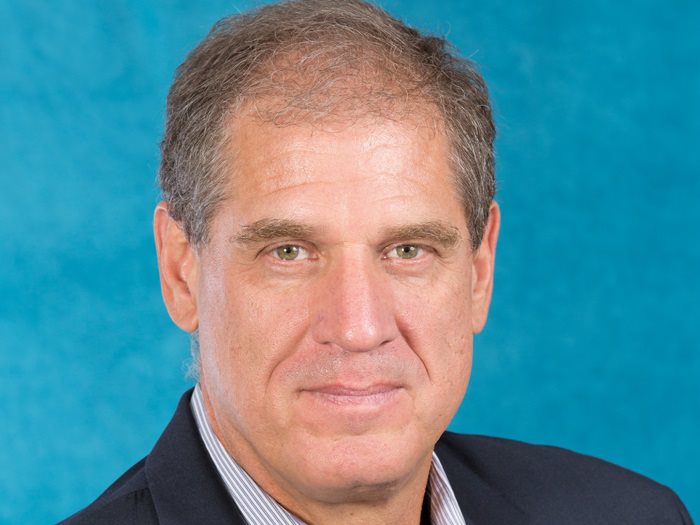Legal Roundup: 600 Bad Golf Balls Score $5M, SCOTUS Hears Case on Prayer at the 50 Yard Line and More

600 Bad Golf Balls Score $5 Million
The Case: Erik and Athina Tenczar had enough. They owned a home next to Indian Pond Country Club but after hundreds of golf balls landed on their property and hit their home, they sued the course and the home builder.
The Tenczars tallied a total of 651 balls on their property, some of which broke windows.
“The couple’s home is at the bend of a severe leftward curve in the course. So golfers seeking to ‘cut the dogleg’ would regularly blast off the tee in hopes of clearing a tree line — but end up hitting the home instead,” reported Yahoo! News.
The family reached a settlement with home construction firm Spectrum Building, but the case against the Massachusetts country club proceeded to a jury trial in Plymouth County Superior Court.
Scorecard: The jury sided with the couple and awarded the Tenczars $4.93 million.
Takeaway: “Indian Pond Country Club was at fault for not protecting the couple’s home from a constant barrage of bad golfing,” reported Yahoo! News.
Indian Pond is appealing the judgment, saying that it is excessive.
The Tenczar’s attorney, Robert Galvin, said the family hopes “the problem could be solved as the tee box on 15 has been moved back, disincentivizing golfers from their attempted shortcut and instead encouraging more simple shots that follow the dogleg,” according to Yahoo! News.
SCOTUS Hears Case Considering Prayer at 50 Yard Line
The Case: Joseph Kennedy, a football coach at Bremerton High in Washington state sued the school after he was put on paid administrative leave after he “continued to kneel and pray on the 50-yard line at the conclusion of a public school football game,” according to NPR.
Kennedy made headlines when he contended in court that his First Amendment right to free speech and the free exercise of religion were violated. “He lost in the lower courts, but appealed to the Supreme Court,” reported NPR.
Scorecard: The case is now before the U.S. Supreme Court.
Takeaway: SCOTUS is tasked with deciding “whether a public-school employee who says a brief, quiet prayer by himself while at school and visible to students is engaged in government speech that lacks any First Amendment protection,” according to the docket.
The court will also decide “whether, assuming that such religious expression is private and protected by the free speech and free exercise clauses, the establishment clause nevertheless compels public schools to prohibit it,” per the docket.
Oral arguments commenced on April 25, 2022.
NY’s Highest Court Overturns $16.5M Asbestos Verdict
The Case: In 2014, Florence Nemeth and her husband sued several parties including Brenntag, and Whittaker, Clark & Daniels, alleging that her mesothelioma was caused by a decade of daily use of Desert Flower cosmetic powder.
Florence died in 2016. While most of the defendants settled, a jury trial proceeded against Whittaker, Clark & Daniels, the talc supplier for the product.
In 2017, the jury awarded the Nemeth family $16.5 million, according to Reuters. An appeal reduced the award to $2.9 million. The case proceeded to the New York State Court of Appeals.
Scorecard: The Appeals court overturned the $16.5 million verdict, saying it was based on insufficient evidence.
Takeaway: The court reached a 5-1 decision. Writing for the majority, Justice Michael Garcia said, “The plaintiffs’ expert who tested the Desert Powder sample did not precisely calculate the amount of asbestos in the powder or the amount that could be inhaled by someone using the powder on a daily basis,” reported Reuters.
The lone dissenting voice, Judge Jenny Rivera, said “the evidence was sufficient to persuade a reasonable jury,” according to Reuters.
Ray-Ban Maker Throws Shade on JP Morgan
The Case: EssilorLuxottica, the world’s largest eyewear manufacturer and maker of Ray-Bans, is suing JP Morgan in the U.S. District Court in Manhattan, “accusing it of failing to notice that thieves had transferred more than $272 million out of one of its bank accounts in 2019,” according to the Wall Street Journal.
In the claim, “the company said an employee at its Thailand plant managed to fake authorization of 243 payments to shell companies scattered across Asia,” the WSJ reported. The company has recovered about $100 million of the stolen funds.
Scorecard: The case has recently been filed and has not reached a resolution.
Takeaway: Essilor said that JP Morgan should have flagged suspicious activity when transactions jumped from $15 million a month to over $140 million. “The money was sent to shell companies with names such as Guangzhou Wendy Hair Products or Citgo Oil Trading LLC,” reported the WSJ. The plaintiff is seeking unspecified damages. &










